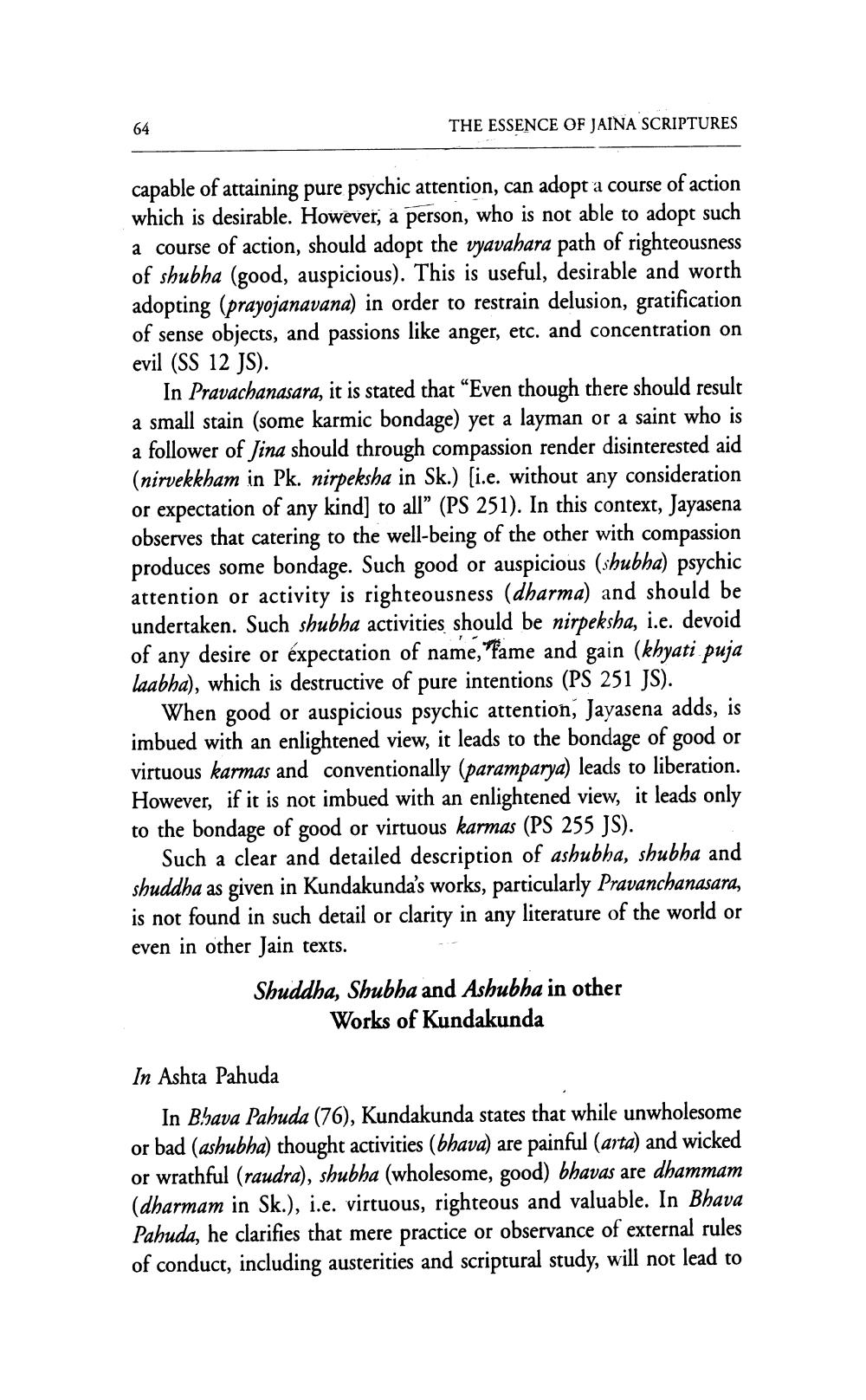________________
THE ESSENCE OF JAINA SCRIPTURES
capable of attaining pure psychic attention, can adopt a course of action which is desirable. However, a person, who is not able to adopt such a course of action, should adopt the vyavahara path of righteousness of shubha (good, auspicious). This is useful, desirable and worth adopting (prayojanavana) in order to restrain delusion, gratification of sense objects, and passions like anger, etc. and concentration on evil (SS 12 JS).
In Pravachanasara, it is stated that “Even though there should result a small stain (some karmic bondage) yet a layman or a saint who is a follower of Jina should through compassion render disinterested aid (nirvekkham in Pk. nirpeksha in Sk.) (i.e. without any consideration or expectation of any kind) to all” (PS 251). In this context, Jayasena observes that catering to the well-being of the other with compassion produces some bondage. Such good or auspicious (shubha) psychic attention or activity is righteousness (dharma) and should be undertaken. Such shubha activities should be nirpeksha, i.e. devoid of any desire or expectation of name, "fame and gain (khyati puja laabha), which is destructive of pure intentions (PS 251 JS).
When good or auspicious psychic attention, Jayasena adds, is imbued with an enlightened view, it leads to the bondage of good or virtuous karmas and conventionally (paramparya) leads to liberation. However, if it is not imbued with an enlightened view, it leads only to the bondage of good or virtuous karmas (PS 255 JS).
Such a clear and detailed description of ashubha, shubha and shuddha as given in Kundakunda's works, particularly Pravanchanasara, is not found in such detail or clarity in any literature of the world or even in other Jain texts.
Shuddha, Shubha and Ashubha in other
Works of Kundakunda
In Ashta Pahuda
In Bhava Pahuda (76), Kundakunda states that while unwholesome or bad (ashubha) thought activities (bhava) are painful (arta) and wicked or wrathful (raudra), shubha (wholesome, good) bhavas are dhammam (dharmam in Sk.), i.e. virtuous, righteous and valuable. In Bhava Pahuda, he clarifies that mere practice or observance of external rules of conduct, including austerities and scriptural study, will not lead to




